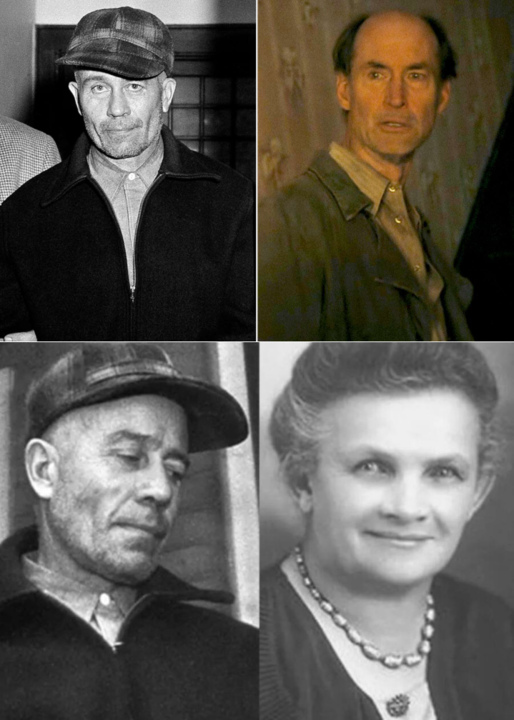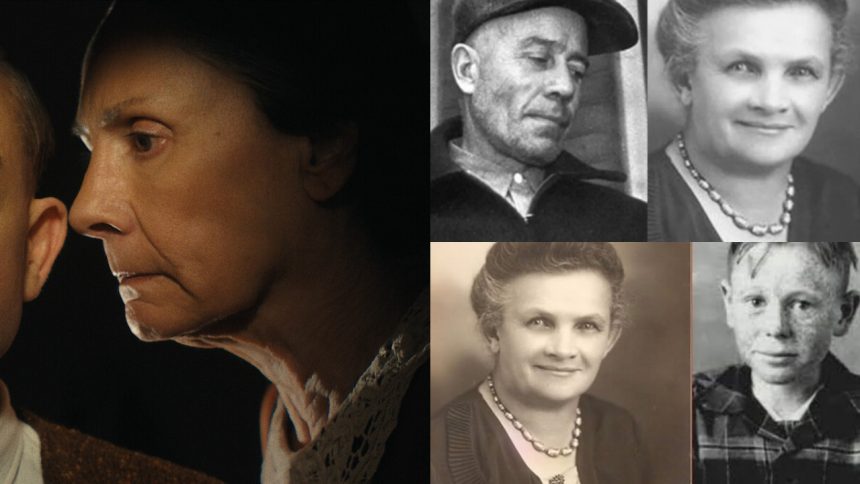To understand the house of horrors that was Ed Gein‘s mind, you have to first picture the bleak, isolated farmstead in Plainfield, Wisconsin, where his world began and ended. The story of Ed is inextricably woven into the suffocating fabric of his family, a unit dominated by a storm of religious fanaticism and despair.
It wasn’t an environment that simply encouraged odd behavior; it was a pressure cooker designed to warp a young, impressionable psyche, sealing him off from any outside influence that might have offered a different path. The key players in this domestic tragedy were his father, George, his brother, Henry, and, most pivotally, his mother, Augusta—a woman whose iron will cast a shadow that long outlived her.
Before we dive into the specifics of his parents and siblings, it’s crucial to grasp the atmosphere they collectively created. The Gein household was not a home; it was a fortress against a world Augusta deemed sinful and corrupt. It was a place where fun was forbidden, where other children were seen as agents of the devil, and where the fire-and-brimstone sermons of the Bible were used not for spiritual comfort but as a weapon of control.
This claustrophobic setting, devoid of childhood joy and social development, was the petri dish in which Ed’s terrifying future began to grow. Every interaction, every harsh word, and every enforced isolation was a brick laid in the wall that would eventually separate him from reality itself.
You Might Like: David Del Rio’s Wife, Katherine, and Two Daughters
The Gein Patriarchs: A Weak Father and a Doomed Brother
George Gein, Ed’s dad, was a man utterly defeated by life and by his wife. He was a chronically unemployed alcoholic who failed at every venture he attempted, from farming to running a small store. In the hierarchy of the Gein family, George was a non-entity. He provided no counterbalance to Augusta’s domineering nature, offering his sons no model of strength or resilience.
To young Ed, his father was a ghost in his own home, a passive example of what happened when you crossed Augusta. George’s irrelevance was so complete that his death from a heart attack in 1940 barely registered as a disruption to the family’s grim routine. For Ed, it simply meant there was one less person in the house, cementing his exclusive and toxic bond with his mom.
The only potential challenger to this dynamic was Ed Gein’s older sibling, Henry. Unlike Ed, who was shy and deeply attached to his mother, Henry saw through Augusta’s fanaticism. He was more independent, more vocal, and he began to openly criticize their mom’s harsh rule and the damaging effect it was having on his younger brother. He worried about Ed’s fragility and the unnatural hold Augusta had over him. This made Henry a threat.

In 1944, while Ed and Henry were fighting a brush fire on the family property, a mysterious tragedy occurred. Henry was found dead, facedown in a smoldering area, with no clear signs of how he succumbed. The death was officially ruled an accident, but the circumstances were deeply suspicious, and many, including the local sheriff, believed Ed, possibly in a twisted defense of his mother, may have had a hand in it. With Henry’s voice of reason silenced, Ed was left entirely alone under Augusta’s thumb.
The True Architect: Augusta Gein’s Poisonous Reign
If George was the weak king and Henry the fallen prince, Augusta Gein was the tyrannical queen who ruled her small, miserable kingdom with absolute authority. She was the sun around which Ed Gein’s entire universe revolved, and her light was a harsh, condemning glare. A devout and radically fire-and-brimstone Lutheran, Augusta spent her days lecturing her sons on the wickedness of the world. She reserved a special, venomous hatred for women, whom she described as vile, sinful temptresses—prostitutes and vessels of corruption who would lead men straight to hell. She drilled this ideology into Ed, teaching him that aside from her, every woman was an instrument of evil.
This created an impossible conflict within Ed. He was taught to both fear and despise women, yet he adored his mom, the sole “pure” woman in existence. This was the central, catastrophic fracture in his psyche. When Augusta suffered a series of strokes and passed away in 1945, Ed Gein’s entire moral and emotional compass shattered. The one person who gave his life structure and meaning was gone, and he was left utterly alone in the silent, decaying farmhouse with her poisonous teachings echoing in his mind. His inability to let her go, combined with his warped understanding of women and his own burgeoning, confused sexuality, festered in that isolation.
Also See: Chloe Rodriguez: Who Is Cam Skattebo’s Girlfriend?
His descent into grave-robbing and unspeakable acts was a desperate, horrifying attempt to literally reconstruct the only form of love and companionship he had ever known—to create a “woman” in the image his mother had approved of, using the very materials she had taught him to loathe. The monster that the world discovered was not born in a vacuum; he was handcrafted, over decades, in the claustrophobic workshop of his family home.



